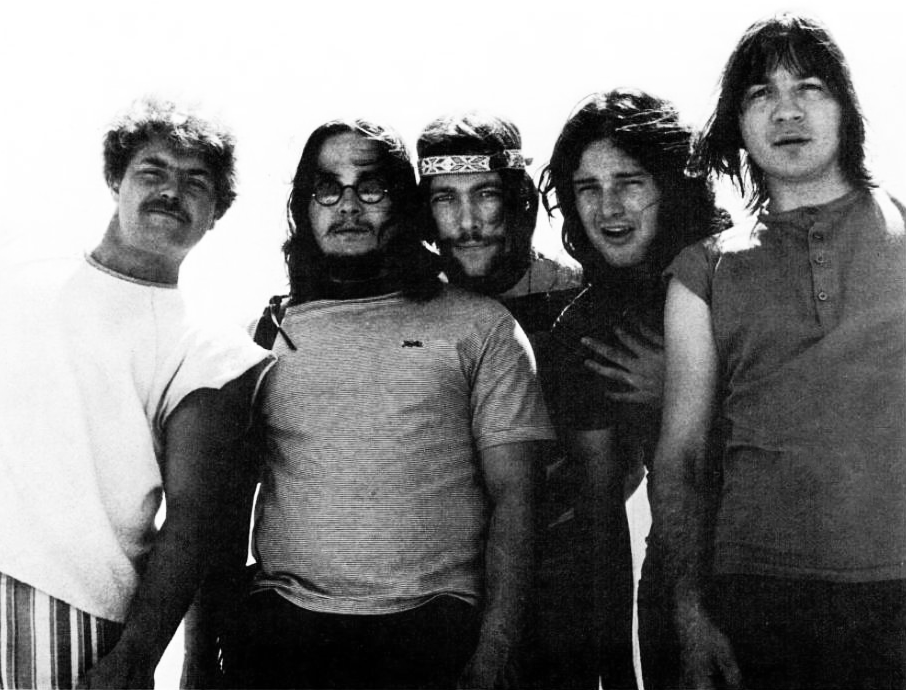“These Eyes” and “American Woman:” The Guess Who
1. “These Eyes” (1969)
https://www.youtube.com/watch?v=xcLdbsrSngA
Background & Creation
- Written by Randy Bachman and Burton Cummings, “These Eyes” was the band’s first major international hit, reaching #6 on the Billboard Hot 100 and earning Gold certification.
- The song originated when Bachman was waiting for a date at her house and started playing chords on a piano. He later collaborated with Cummings to finish the song in about 25 minutes.
- Initially titled “These Arms,” Cummings changed it to “These Eyes” and added the middle section.
Meaning
- The lyrics of ‘These Eyes’ delve into the depths of heartbreak, longing, and betrayal. The repeated phrase ‘these eyes’ symbolizes profound emotional pain and vulnerability, as the narrator mourns a lost love and broken promises.
- Themes include:
- Unfulfilled promises (“You gave a promise to me… and you broke it”)
- Irreplaceable love (“Never gonna see another one like I had with you”)
- Musically, ‘These Eyes’ is a unique blend of baroque pop, blue-eyed soul, and blues rock. It features orchestral arrangements and a distinctive chord progression that modulates upward through several keys, setting it apart from other songs of its time.
Impact
- “These Eyes” marked The Guess Who’s breakthrough in the U.S., paving the way for later hits like “American Woman” and “No Time.” It remains a classic late ’60s ballad.
2. “American Woman” (1970)
https://www.youtube.com/watch?v=3r_qd2yxIsM
Background & Creation
- Written spontaneously during a live show in Ontario when guitarist Randy Bachman broke a string and improvised the famous riff. Burton Cummings ad-libbed the first lyrics: “American woman, stay away from me”.
- The band later refined the jam into a full song, which became their first #1 hit in the U.S. and a defining track of 1970.
Meaning & Interpretations
- Controversial and debated:
- Anti-war protest interpretation: Bachman said the lyrics reflected rejection of U.S. militarism and Vietnam-era politics—“We don’t want your war machines, we don’t want your ghetto scenes”.
- Personal/stream-of-consciousness view: Cummings insisted it wasn’t political, just improvised words expressing a preference for Canadian women and a playful vibe.
- The “American Woman” is often seen as a symbol, not a literal person—sometimes interpreted as the Statue of Liberty or American cultural dominance.
Impact
- ‘American Woman’ became an anthem of the era, blending hard rock, blues rock, and psychedelic elements. Its gritty riff and rebellious tone resonated deeply with the counterculture movement, making it a significant cultural touchstone.
- It was later famously covered by Lenny Kravitz in 1999, earning a Grammy and introducing the song to a new generation.
Why These Songs Matter
- “These Eyes” showcased The Guess Who’s ability to craft emotional, melodic ballads.
- “American Woman” captured the raw energy and political tension of the late '60s/early ’70s, becoming a cultural touchstone.
The political message behind “American Woman” by The Guess Who is layered and has sparked debate for decades:
Core Themes
- The song was written during the height of the Vietnam War and reflects a sense of Canadian identity and resistance to U.S. influence.
- Lines about “war machines” and “ghetto scenes” are widely interpreted as a critique of:
- American militarism (Vietnam-era draft and war policies)
- Social unrest in U.S. cities during the late 1960s (civil rights struggles, urban poverty)
Band’s Perspective
- Randy Bachman (guitarist) explained that the lyrics were a spontaneous reaction to the political climate:
“We don’t want your war machines, we don’t want your ghetto scenes.”
This suggests a rejection of American social and military problems spilling into Canada. - Burton Cummings (vocalist), however, claimed the words were improvised and not intended as a formal protest—more like a stream-of-consciousness jam. Still, the imagery resonated with anti-war sentiment.
Symbolism
- The “American Woman” is not a literal person but a metaphor for the United States—its cultural dominance, political turmoil, and aggressive foreign policy.
- The plea to “stay away” reflects a desire for Canadian independence from U.S. influence during a turbulent era.
Cultural Impact
- The song became an accidental protest anthem, embraced by listeners who opposed the Vietnam War and American interventionism.
- Its rebellious tone aligned with the counterculture movement, even though the band didn’t set out to write a political manifesto. This underlines the song’s cultural significance and its Impact on the counterculture movement.
